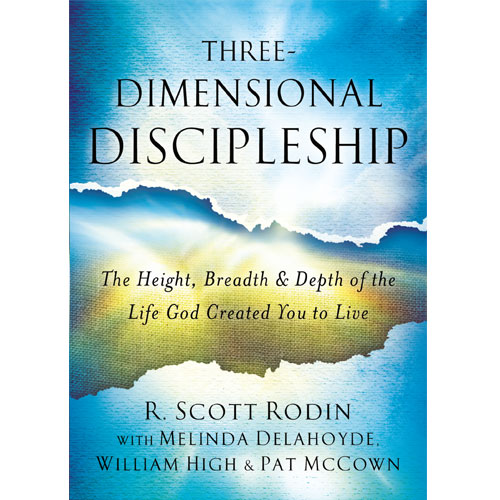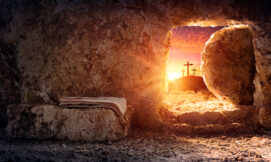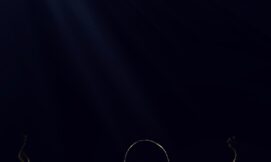Life’s One Great Question and the Immense Consequences of our Answer

Life today seems to be getting increasingly complicated. The complexity of issues, arguments, viewpoints, opinions, and even theological perspectives and biblical interpretation seem endless. Take any three of the pressing issues of our day and share your view of them with any five people and immediately the breadth of viewpoints will become evident, along with a lot of passion. How do we, as followers of Jesus seeking to be faithful stewards of our life, navigate our way in these times?
I want to propose that perhaps the landscape is less complex than we may think. In fact, I’ll make the audacious claim that everything we see in our culture, as well as inside the church, is the result of how we answer one fundamental question. Do I have your attention? OK, here it is.
“Who owns your life?”
The enormity of this question and the magnitude of the consequences of our answer cannot be overstated. There are only two possible answers to this question; either God owns our life, or we do. Each answer leads us down a path that determines everything we do in life, and the direction of the paths that diverge at the point of this answer are radically different.
Consider the one possible answer, ‘I own my own life’. As master of my own destiny my definition of success directs me on the road to pursuing those interests and engaging in those practices that will bring me the greatest meaning, purpose and satisfaction in life. In this pursuit, everything is on the table: my identity, my gender, my vocation, my beliefs, my politics, my lifestyle choices, and on and on. These are options I consider to be both within my control and my absolute, unequivocal right. Therefore, no one has the right to challenge them or to put any obstacles or barriers in my way of pursuing them. My life is my life, and I will live it the way I want to live it. I expect my government to clear the path for me to do so without hindrance and I expect my fellow human beings to either affirm all of my choices or stay silent. To do anything else is both an offense and a violation of my personal freedom and my entitlement to choose to live my life however I want.
This self-focused worldview is nothing new. It started in Genesis chapter 3 and has continued throughout human history, including ours. However, in the broader American culture, there have been curbs and guidelines that have kept the wanton pursuit of self-interest somewhat in check. These came in the form of cultural mores and a general ethic fueled in part by an acceptance of a Judeo-Christian worldview that was held strongly enough by a large enough section of our culture that it made some manifestations of this pursuit of the self-absorbed life unacceptable. That is no longer the case. What we are seeing unfold before us is the obliteration of those mores and the demonization of any idea of a meta-ethic to which we are accountable. As a result, the pursuit of the unchecked exercise of our supposed personal freedom is becoming our national religion with the deification of the self as our new god. The devastating consequences of the first choice are everywhere to be seen.
The other choice is the path of the steward. Recognizing that God owns the totality of our life, we measure success in terms of obedience and faithfulness. We willingly and joyfully come under the guidance and direction of a clear set of ethics and standards put in place by the true owner of our life, designed solely for our good. In trusting the owner, we live fully the life he created us to live, which, antithetically to those on the other path, involves such things as joyful sacrifice, selflessness, humility, a desire to serve our neighbor, living at peace with everyone, speaking truth, and being engaged in the work of biblical justice and reconciliation. All of this is done in a context of a denial of self-advancement or personal gain. Of course, this is the ideal picture of the life of the steward who truly believes that God is the absolute owner of his or her life. And while all of us struggle to live this way, God does not ask us to be perfect, only faithful in the journey.
Tragically, we are facing a considerable challenge to that life from a troubling source. We would expect the life of the surrendered, faithful steward to be in opposition to a culture hell-bent on pursuing the outer limits of a self-focused life. However, even more formidable is the preponderance of self-professed Christians who seek to live somewhere between the two. The church’s witness to our transformation in Jesus Christ and the ability of that witness to impact our culture is being systematically destroyed not so much by a self-absorbed culture but by a compromised church. When we, who profess to follow Christ, believe that we can somehow live as travelers on both paths, we show ourselves to be charlatans and frauds.
Before Christ, we are forgiven even for such egregious sin. But to the world, our behavior fuels the fires of anger and indignation against a faith that is increasingly regarded as not only irrelevant but harmful to a culture attempting to construct a society based on unrestrained narcissism. We must recognize the damage we cause when we proclaim to follow Jesus while also meandering on the path of self-promotion, self-reliance and entitlement.
What’s our response? In this culture it is critical that followers of Jesus live an increasingly surrendered life. We must take seriously the call to lose our life to find it (Matthew 10:39), to take up our cross and follow Jesus (Matthew 16:24), to leave everything behind and follow him (Mark 1:20), to seek first the kingdom of God and set aside all the other things, placing them in God’s hands (Matthew 6:33). We must be set free by the truth that our life is not our own (Galatians 2:20) and that our lives have been bought with a price (1 Corinthians 6:19-20). We must affirm Jeremiah’s confession, “Lord, I know that people’s lives are not their own; it is not for them to direct their steps” (Jeremiah 10:23).
These biblical truths can no longer be treated as helpful suggestions. They must become the operating manual for the people of God if we are to stand out and stand firm in our current cultural moral collapse.
So, I ask you again, “who owns your life?”
Another way to ask it is, “who decides?” Who decides how you will spend your time each day? Whose voice shapes your identity and determines your self-worth? In whom or what do you find your security? Who decides how you spend, invest and give your money? Who determines the purpose and meaning of your relationships? Whose ethics establish your values and guide your actions and attitudes? Who is in charge of your future?
The choice is clear. Either life is a possession and living it is a right that must be demanded and protected, or life is a gift and living it is a journey of surrender, freedom and joy. The choice for self-interest is laying an axe to the root of our country. Attempting to live in between the two is robbing God’s people of the abundant life in Christ and destroying the witness of church.
Let us commit today to proclaim that God truly owns our life, all of it. In response, let us do today whatever needs to be done to surrender it back to God, to give up control of all parts of our life, and to walk the path of the faithful steward, constantly seeking how God would have us spend the life he has gifted to us for his glory.





